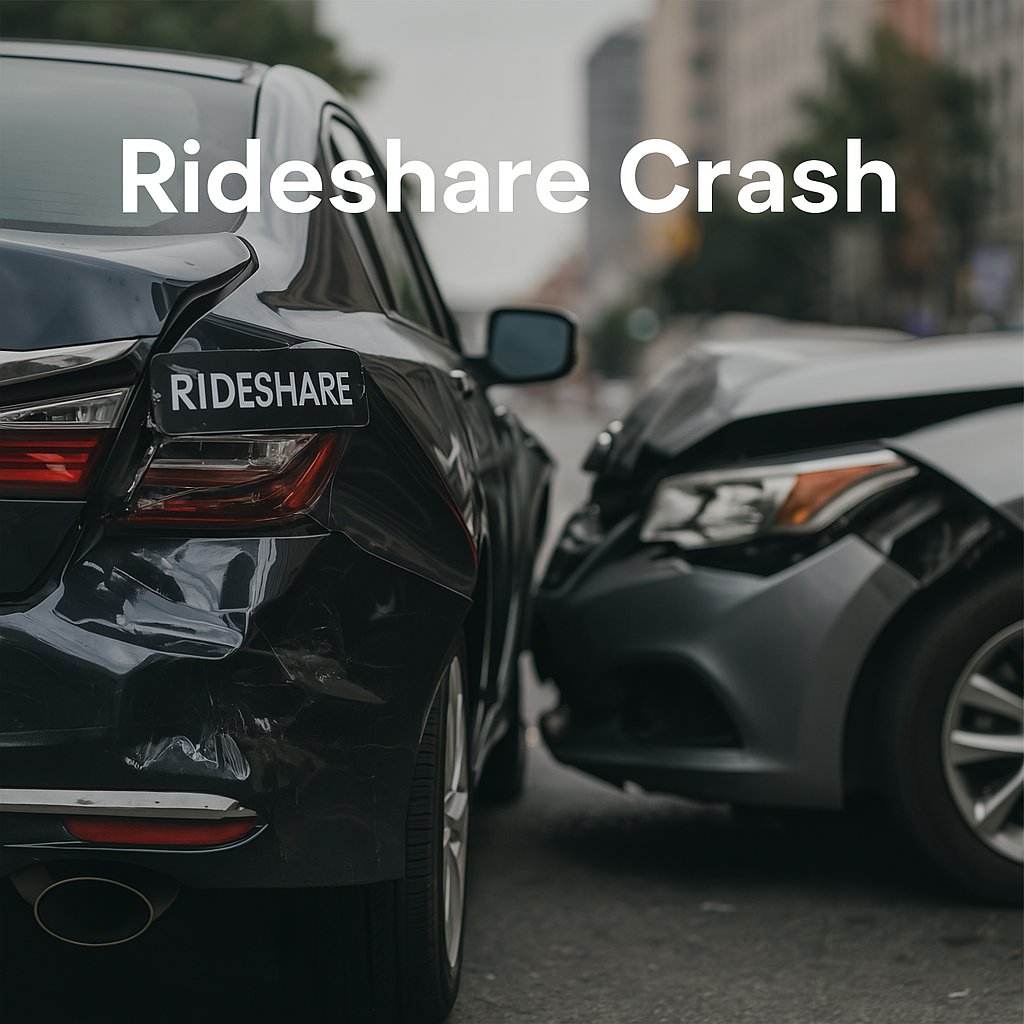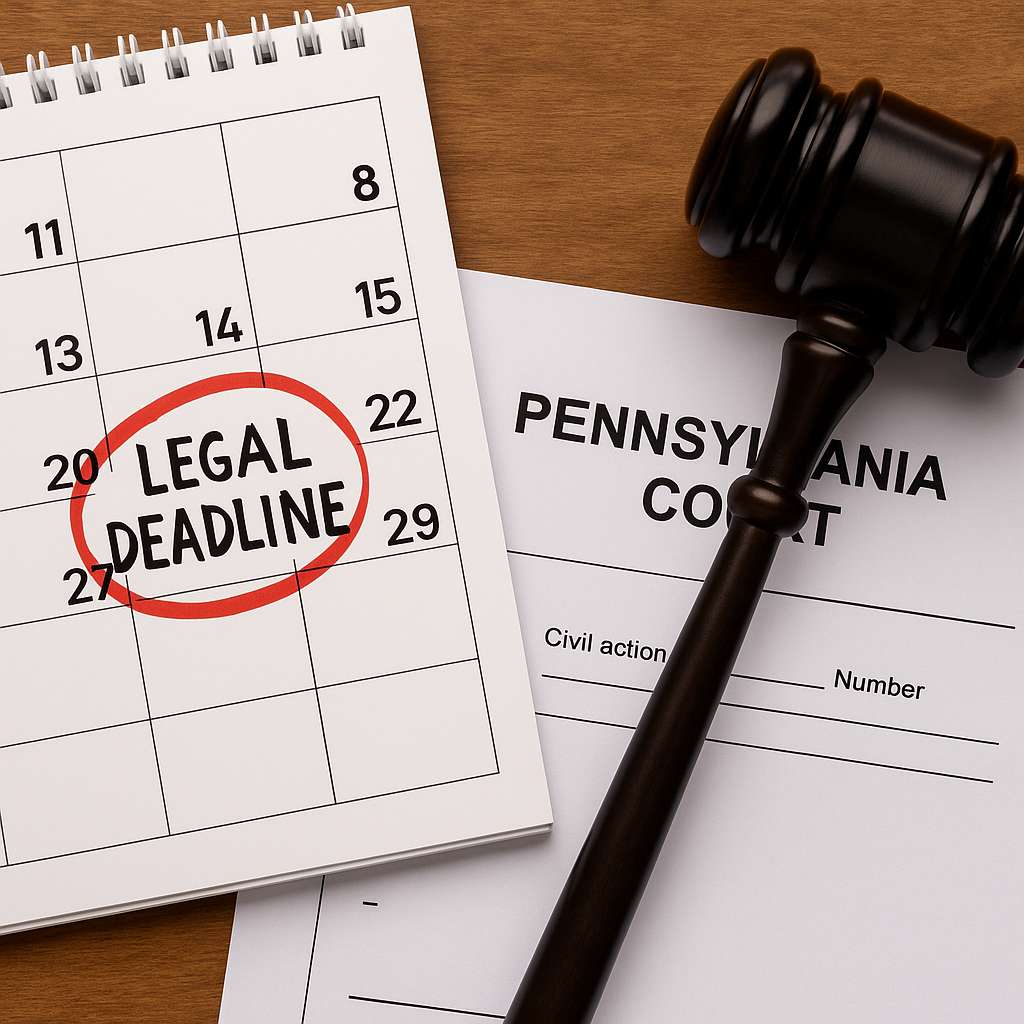
What Makes Rideshare Accidents Different?
Uber and Lyft accidents in Philadelphia involve legal complexities that set them apart from typical car crashes. Unlike standard collisions, these cases often include multiple insurance policies, questions about the driver’s independent contractor status, and unclear liability rules. An experienced rideshare accident attorney can guide you through the process, helping you understand how insurance coverage works and who may be held responsible. By working with a qualified Uber accident attorney in Philadelphia, you increase your chances of recovering the compensation you deserve.
Why You Need a Lawyer for Uber and Lyft Accidents in Philadelphia
Uber and Lyft accidents in Philadelphia present unique legal challenges due to the drivers’ classification as independent contractors—not employees. This distinction complicates insurance claims and liability issues. A skilled rideshare accident attorney understands these complexities and can help protect your rights, ensuring your claim is handled properly from the start.
Whether you need a Lyft accident attorney or an Uber accident lawyer, choosing a local expert makes a difference
Philly Personal Injury Law “Understanding Personal Injury Law in Philadelphia”
When it comes to Uber and Lyft accidents in Philadelphia, understanding your legal options is essential. In this guide, you’ll learn who may be held responsible, how rideshare insurance coverage works, and what types of compensation you can pursue. Whether you were injured in an Uber or Lyft crash, partnering with an experienced rideshare accident attorney in Philadelphia ensures your claim is handled with the knowledge these complex cases demand.
What This Guide Covers
In this guide, you’ll learn how liability is determined in a rideshare crash, how Uber and Lyft insurance operates, and what compensation may be available. You’ll also find out why hiring an Uber accident attorney Philadelphia or a Lyft accident attorney can help protect your rights at every stage of the process.
Whether your accident involved a distracted driver, faulty rideshare coverage, or multiple parties, this guide will help you understand what comes next
Visit NHTSA: https://bit.ly/428goVy
Who Is Liable in an Uber or Lyft Accident?
Determining liability in a rideshare crash depends on what the driver was doing at the time of the accident. Responsibility may fall on:
-
The Uber/Lyft Driver – If the driver acted negligently (e.g., by speeding or using their phone).
-
Another Driver – If a third-party driver caused the crash.
-
Uber or Lyft’s Insurance Policy – If the rideshare app was active during the crash.
👉 Pro Tip: Liability often depends on whether the driver was waiting for a ride, picking someone up, or actively driving a passenger. A knowledgeable Uber accident attorney Philadelphia can help clarify who is accountable.
If your Lyft driver caused the crash or you were hit while riding in a Lyft, speak to a Lyft accident attorney. An experienced lawyer can review the details, explain insurance coverage, and fight for the compensation you’re owed.
How Uber & Lyft Insurance Works
Uber and Lyft offer different insurance coverage based on the driver’s status within the app.
🚫 If the Driver Is NOT Logged Into the App (Personal Use Mode)
-
Insurance Coverage: The driver’s personal car insurance applies.
-
Who Pays? Uber and Lyft provide no coverage in this situation.
⏳ If the Driver Is Logged In & Waiting for a Ride Request
-
Insurance Coverage: Uber and Lyft provide:
-
$50,000 per person for injuries
-
$100,000 total per accident
-
$25,000 for property damage
-
🚗 If the Driver Is Picking Up a Passenger or On a Trip
-
Insurance Coverage: Both companies offer up to $1 million in liability coverage.
👉 Pro Tip: If the rideshare driver was working when the crash occurred, their personal insurance may deny coverage. This is why company-provided insurance is critical—and why a rideshare accident attorney in Philadelphia is essential for navigating these claims.
Injured as a Passenger in an Uber or Lyft?
Passengers injured in rideshare accidents may be eligible for compensation from:
-
Uber or Lyft’s $1 Million Policy – If the rideshare driver was at fault.
-
Another Driver’s Insurance – If a third party caused the accident.
-
Uninsured/Underinsured Motorist Coverage (UM/UIM) – If the at-fault driver had insufficient insurance.
An experienced Uber accident attorney Philadelphia can evaluate your case and help you access all available coverage options.
What Compensation Can You Receive in a Rideshare Accident?
If you’ve been hurt in a rideshare crash, you may be able to recover:
-
💰 Medical Expenses – Hospital visits, surgeries, rehabilitation, and future care.
-
💼 Lost Wages – Time away from work or loss of income.
-
😔 Pain & Suffering – Emotional trauma, PTSD, and long-term impact.
-
🚗 Property Damage – Car repairs or total loss replacement.
👉 Pro Tip: Rideshare companies carry large insurance policies, but their adjusters may work to reduce your payout. A Lyft or Uber accident attorney Philadelphia can negotiate for the full compensation you deserve.
Pain and Suffering: How Much Can You Recover in a Personal Injury Case?
Steps to Take After an Uber or Lyft Accident
If you’re injured in a rideshare accident, follow these steps to protect your rights:
1️⃣ Seek Medical Attention – Even if you feel fine, some injuries appear later.
2️⃣ Report the Accident – Notify Uber/Lyft through the app.
3️⃣ Gather Evidence – Take photos, collect witness info, and get the driver’s details.
4️⃣ Do Not Accept a Quick Settlement – Rideshare companies may try to settle for less than you deserve.
5️⃣ Contact a Rideshare Accident Lawyer – An attorney can fight for maximum compensation.
A Lyft accident attorney in Philadelphia understands the company-specific insurance rules that apply when a crash involves a Lyft vehicle.
Why You Need a Lawyer for a Rideshare Accident
Because rideshare companies use complex insurance policies, filing a claim can be challenging. An experienced Uber/Lyft accident lawyer can:
✔ Identify the correct insurance policy to file against.
✔ Prove driver negligence using app data, GPS records, and witness testimony.
✔ Negotiate with Uber & Lyft’s insurance adjusters for full compensation.
✔ File a lawsuit if necessary to get the settlement you deserve.
If you were injured in a rideshare crash, a skilled Uber accident attorney Philadelphia can help secure the compensation you deserve.” “Connect with a trusted Uber accident attorney Philadelphia today to get started.
What to Do After an Accident: A Step-by-Step Legal Guide
Philly Legal Connect is an independent legal news and information platform. We are not a law firm, and we do not provide legal representation, legal advice, or attorney-client services. The content on this website is for informational purposes only and should not be considered legal advice. If you require legal assistance, we strongly recommend consulting a licensed attorney in your jurisdiction. Use of this website does not create an attorney-client relationship.


